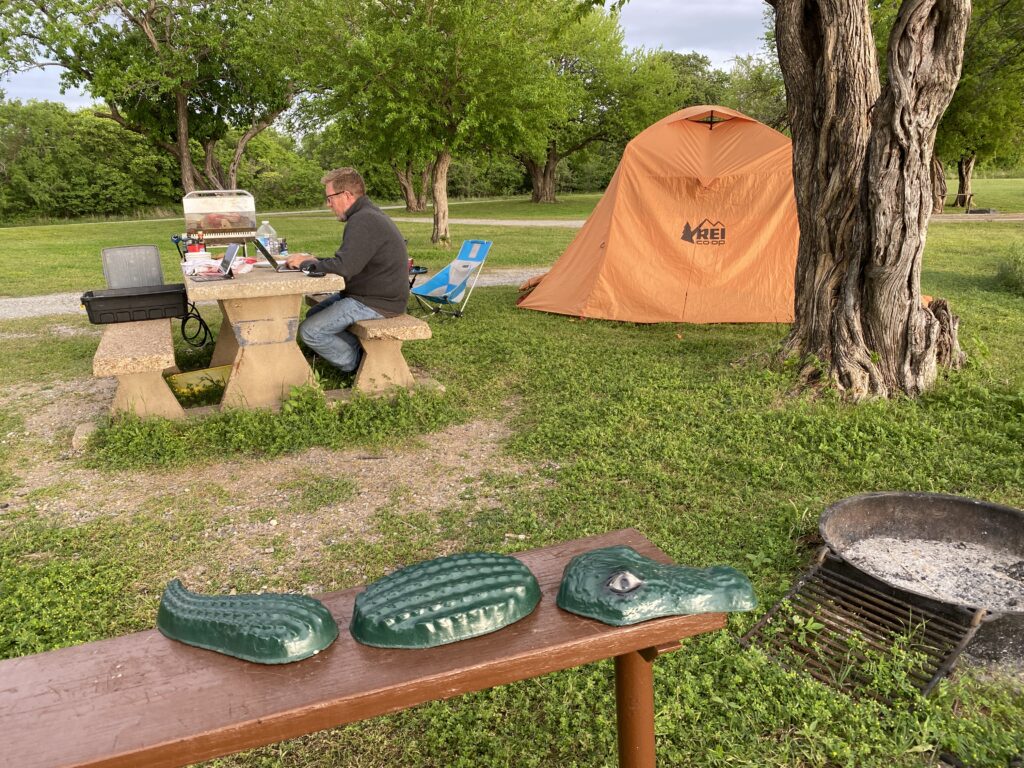Roadtrip thrifting is way more exciting than hometown thrifting. The only thing better than finding fast wifi in a small town library, is finding the local small town thriftshop. Sheri is always scanning on the slow down drive through for treasure huts. Eric agrees to stop most of the time and sometimes hits the brakes and hangs a wide U on a “just missed with potential sighting.”
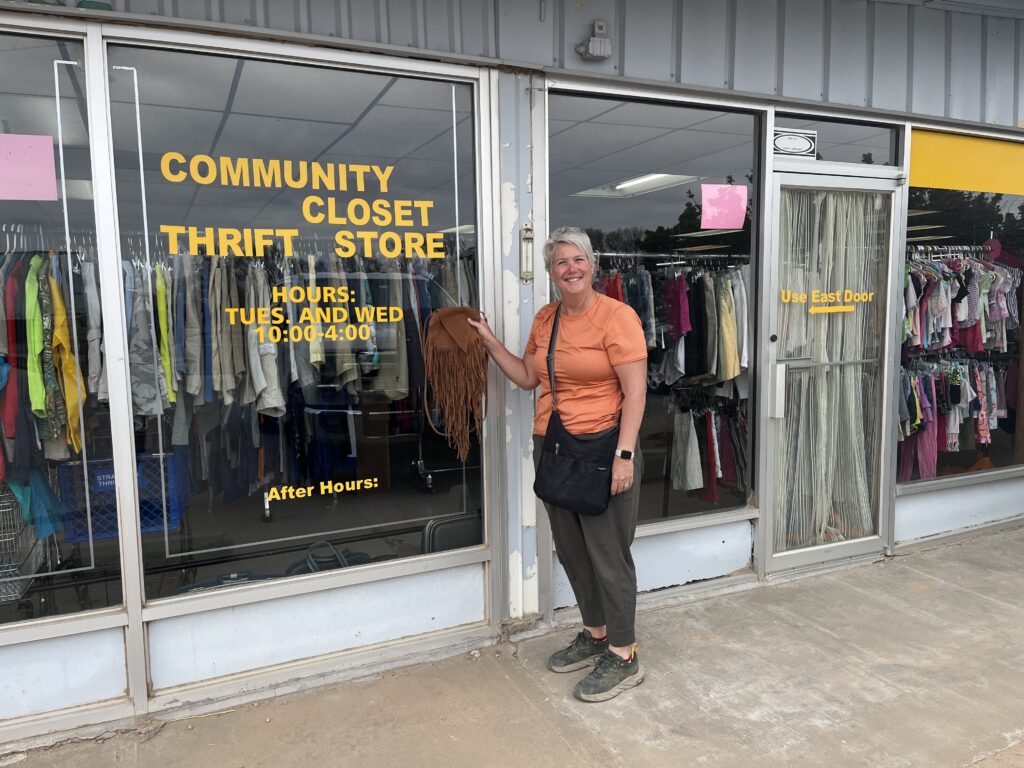
Community Thrift is just across the New Mexico-Texas border on 87 East, up in the northwest rectangle part of the state. After a hard U from seeing “lots of cars in the parking lot,” Sheri picked her way through high quality merch with please take it from us prices. Good and bad, there is not room in the truck for troves of treasures so she’s using heightened selectivity, meaning it has to be relevant, compact or inspiring. She found a fringed suede purse for $1 that she plans to re-purpose into pricey boutique Palm Springs shoe tassels. Stay tuned!
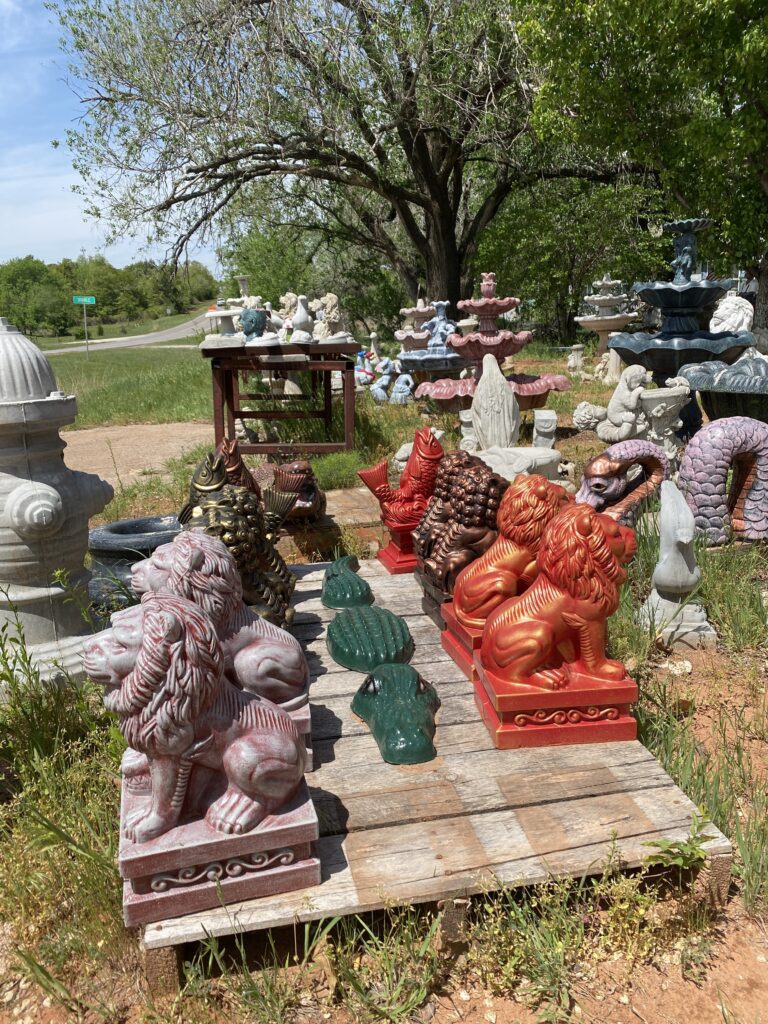
With a Clayton get-up-and-go strategy to based on Eric’s weather guessing, we stopped in Dalhart for Texas breakfast at The Grill and Wi-Fi at the local library to post a blog and check our email. Even the 20 four-year-olds in the library loudly singing a song about a spider could not bother us after a genuine diner breakfast plate.
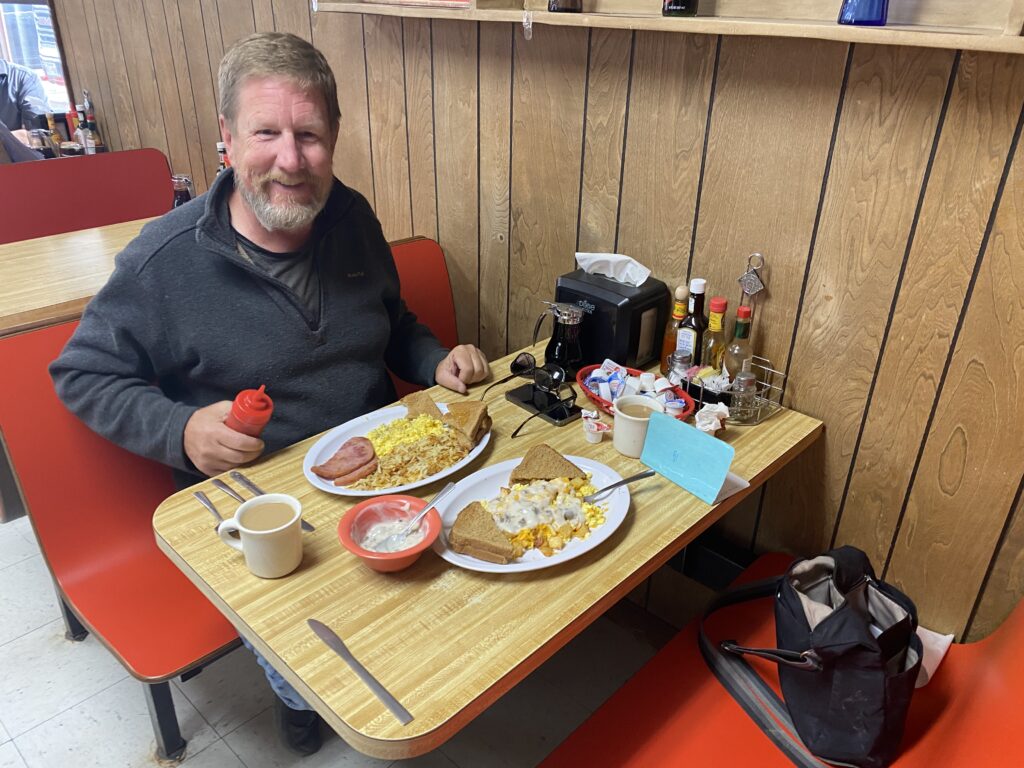
Forgoing the rapid pace of the Eisenhower interstate system, we took secondary roads to make our way from Oklahoma’s panhandle to its southeastern corner. The long stretches between towns are cows on ranches, oil drillers, and wind turbines. A natural gas plants breaks the monotony of grain silos. The roads may be secondary, one lane in each direction, and with no shoulder, but the speed limit is an aggressive 65 mph. We white knuckle 70 so we get continually passed by the 18-wheelers. The only time you need slow is when encountering a town every 30 miles or so. Most small towns are a Dollar General that everyone prays does not go under, a one-pump gas station selling gas at LA prices, and two pot dispensaries.
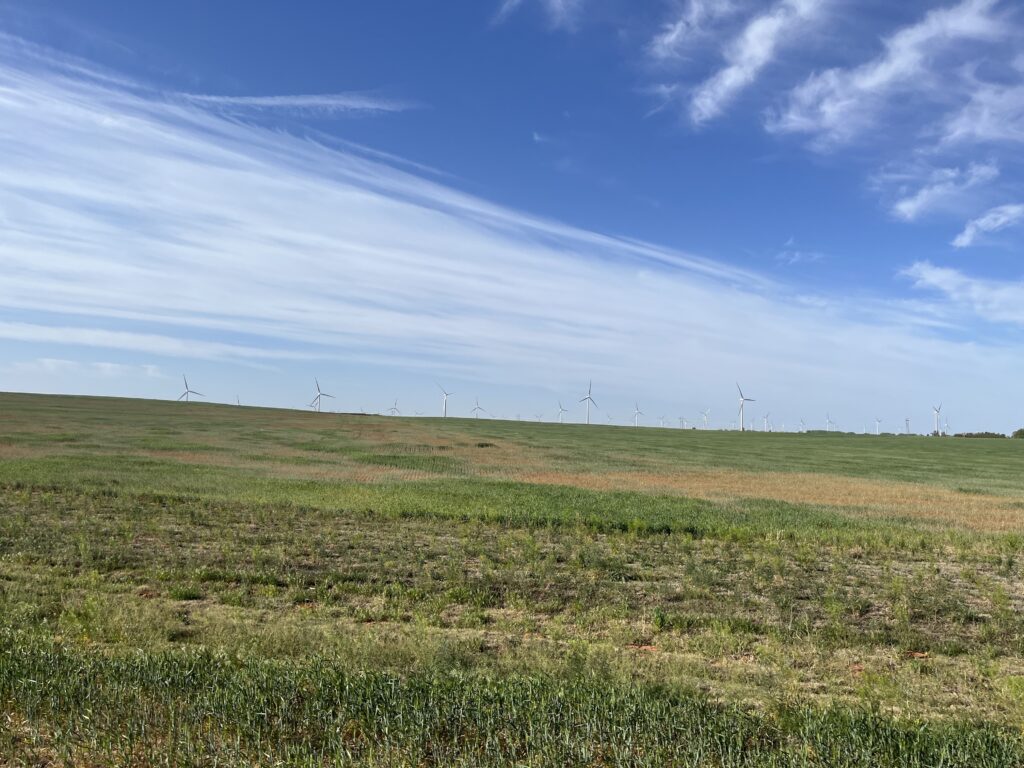
Oklahoma small towns are not charming. Larger towns, those marked with a Walmart Super Center, are all business, and not those charming kind of businesses you see in the movies like a bookstore or cafe. Feed and fertilizer or diesel repair and heavy equipment businesses dominate.
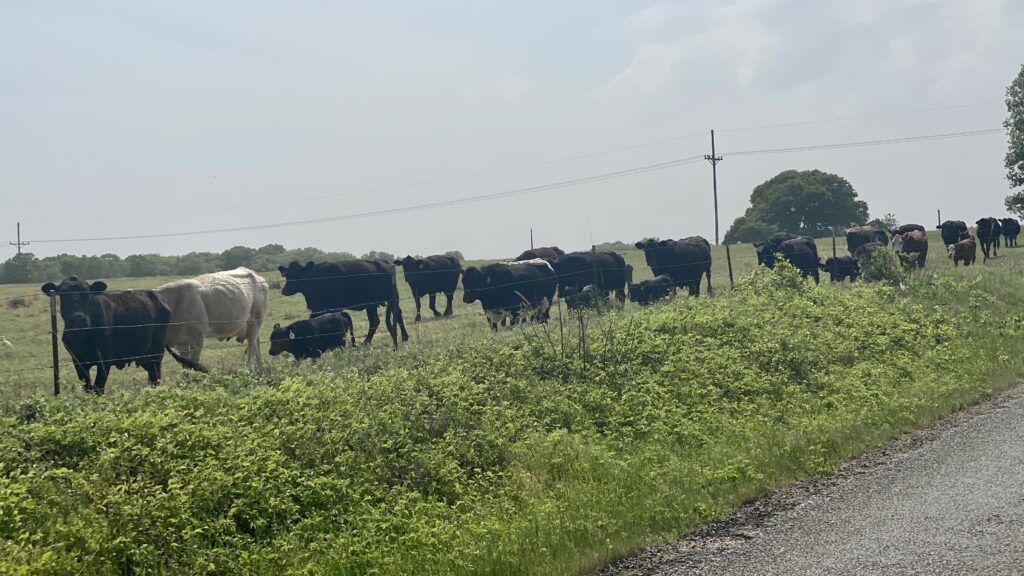
Oklahoma is for hard working, no nonsense people. Even the weather is serious. As we entered Oklahoma, a tornado watch was placed for most of the central part of the state. Being tenters, we have to be weather whisperers. Rain, cold/hot temperatures, and high winds can all kill us in our lightly canopied sleep, or at least make us super uncomfortable.
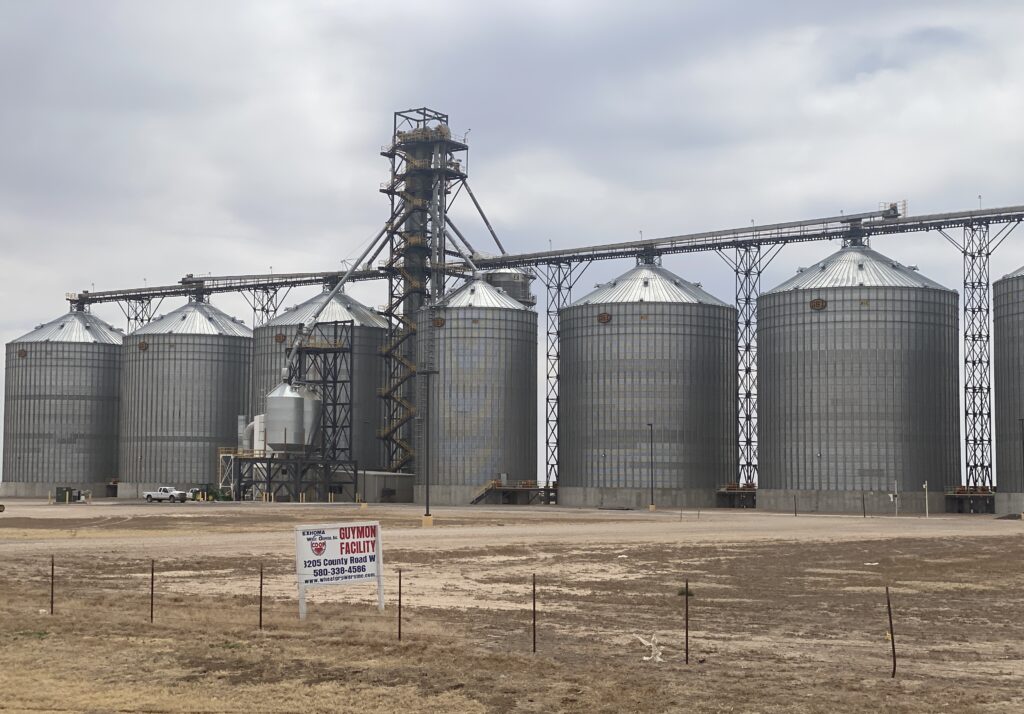
We pushed as close to the tornado watch boundary as we dared. Boiling Springs State Park did not sound particularly inviting, but it geographically made sense. We pitched in fine dirt on a site in a hallow of protected trees next to a not-boiling but pretty gross spring. The strategy worked. All night the wind whipped through the tree canopy while only occasionally shaking the Grand Hut 4. Shawnee and Norman, towns an hour or so down the road, got leveled by tornadoes. On radio interviews we heard residents take it in stride. We will just get to work rebuilding, they said, non-pulsed.
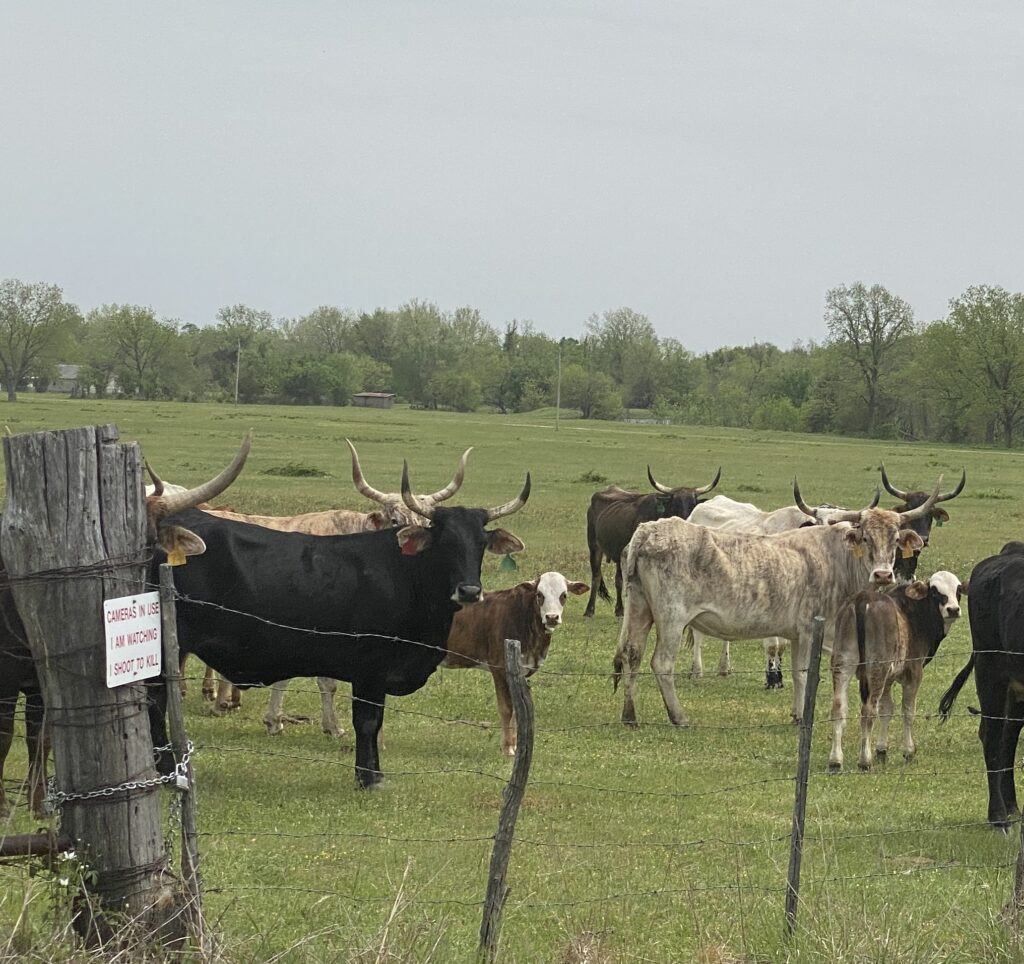
Finally, on the eastern edge of Oklahoma we pitched camp on the banks of Lake Texoma in an Army Corp of Engineers campground. Huge thunderstorms had slammed the lake earlier in the day and were predicted in the coming two, but our night was calm. A massive low pressure zone throwing down record rain lies between us and home still. No problem for the weather whisperers (hopefully). We’re flexible.
